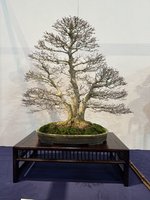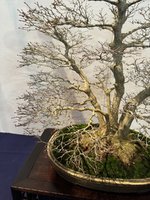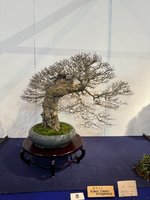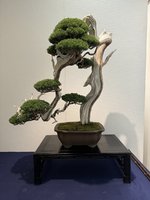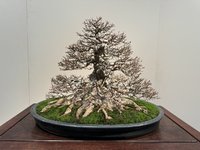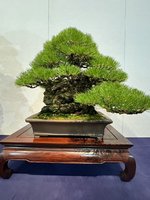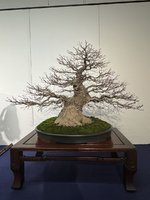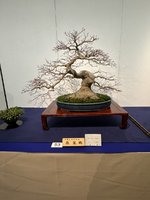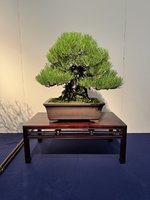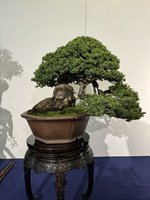baron
Shohin
I would find the "only foreigners" buy Kokufu trees thing a bit suspicious, given the sheer numbers of trees and exhibitors involved. Those top trees are bought and sold among Japanese bonsai nursery owners repeatedly from what I've seen a heard. That may be changing, however, with Chinese buyers in particular purchasing trees. The "they increase the price because it's in the show" thing is also a bit cynical and inaccurate. As pointed out, that happens at any bonsai show in Japan, Europe and the U.S. Provenance and awards and even admission, into a prestigious show ANYWHERE will increase the price of a tree. What's wrong with that anyway?
Worth reading through:
Huh? How is it a bit cynical and inaccurate?
I'm not staying it is wrong or anything, and yes ...Provenance and awards and even admission do increase the price of the tree. -> yes this is exactly the point I'm trying to make...
But in Japan there are two distinct sides to the bonsai community. On one side bonsai is practiced, as it is here, as a hobby. The other side, which is not mirrored in the U.S., is the bonsai industry. The difference between the two is that there are hundreds of professionals in Japan who are able to make a living in bonsai .
For the top bonsai professionals in Japan the Green Club during Kokufu is very important to their livelihood. Selling trees and attracting clients is how these men feed their families. First and foremost its about sales. The Kokufu-ten draws people from all over world, many of whom are coming to shop for bonsai at the Green Club. This influences which trees are brought to sale.
You can think of each professional as a fisherman using his best lure to catch the biggest fish. Currently the biggest fish come from China, the recent growth of the Chinese economy has brought an appetite for high-end trees and pots. Therefore the lures used appeal to these fish the most, and the most appealing lures are big. As I walked around on the first floor I noticed that each pro had at least one massive tree for sale.
That was exactly the point I was trying to make..
For them bonsai is a business and the Kokufu attracts the clients with the biggest wallets (Chinese or american or european it doesn't matter).
So it's a cash cow
Even in the articles by Valavanis it says so;
There were 12 bonsai displayed by owners from foreign countries: Germany, Sir Lanka, Italy, Spain, China and the United States. Of course, these were Japanese trained bonsai and I doubt if the owners ever watered.
So the way I see it, these people just have a mass amount of cash and want a tree in the Kokufu....
Last edited:

